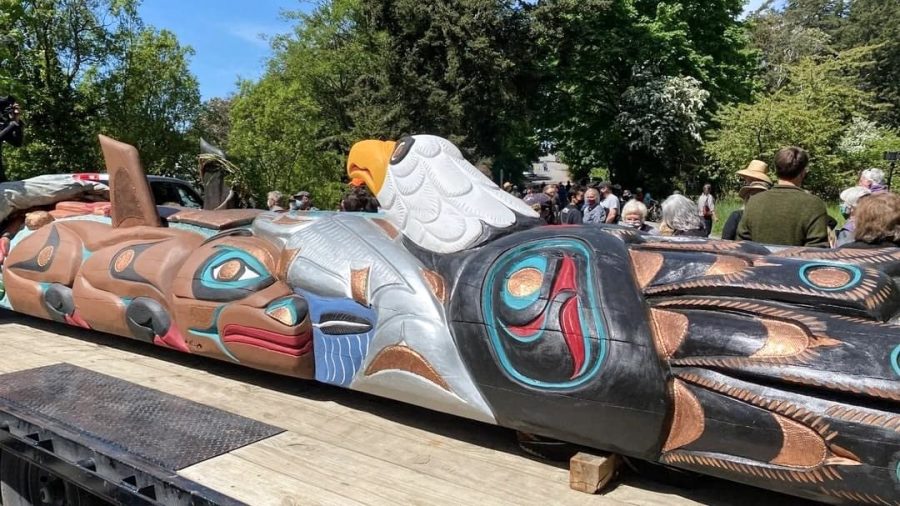Organizations teaching Palouse’s history
Event on July 15 in Clarkston; Lummi Nation totem pole traveling across the country
The purpose of the event is to educate people on the effects of the Lower Granite Lake Dam located along the Snake River.
July 12, 2021
A Washington group, Nimiipuu Protecting the Environment, is hosting an event called Red Road to D.C. from 9 a.m. to 1 p.m. on July 15 at Chief Timothy Park in Clarkston, Wa.
Red Road to D.C. follows the journey of a Lummi Nation totem pole making its way from Western Washington to Washington D.C., stopping at sites presenting environmental issues along the way, NPET coordinator Julian Matthews said. Clarkston is one of many stops on the trip.
The event’s goal is to educate people on issues NPET has been fighting for years, specifically the effects of the Lower Granite Lake Dam located along the Snake River such as diminishing salmon populations, Matthews said.
“[NPET] is an environmental, charitable group,” Matthews said. “We’ve been working on this dam issue since we started.”
Matthews said the issues at hand are not just for Nez Perce or environmentalists. The river’s resources are diminishing; it’s an issue for everyone on the Palouse.
“The fish or salmon are not just for tribal members; they’re for everyone,” Matthews said. “They’re part of our environment, and we need to make sure this is not just an Indian issue.”
Five confirmed speakers will speak at the event, including Nez Perce elders, carvers, environmentalists and Lummi Tribe members, he said.
“It is primarily to bring attention to the Snake River dams,” Matthews said, “but I want to hear from the Lummi Tribe about their journey since they’ve been traveling across the country for the last couple of months.”
NPET media contact Morgan Chaffee said the event is the perfect learning experience for those in the area who are not familiar with the history of the Palouse.
“You should know what’s going on,” Chaffee said. “It’s a really hot topic in the environmental community, so if you’re interested in environmental issues locally, that’s a reason to come out.”
Matthews said he blames the K-12 education system for many people’s lack of knowledge about Native history.
“If you’re a progressive person and open-minded, you’ll learn something very valuable,” he said. “This is a big issue … we’re here, we’re a tribe, we’ve been here for thousands of years, so it would be really good to come and learn about our history.”
Individuals can RSVP for the event on the group’s Facebook page. More information on NPET can be found on its website.












